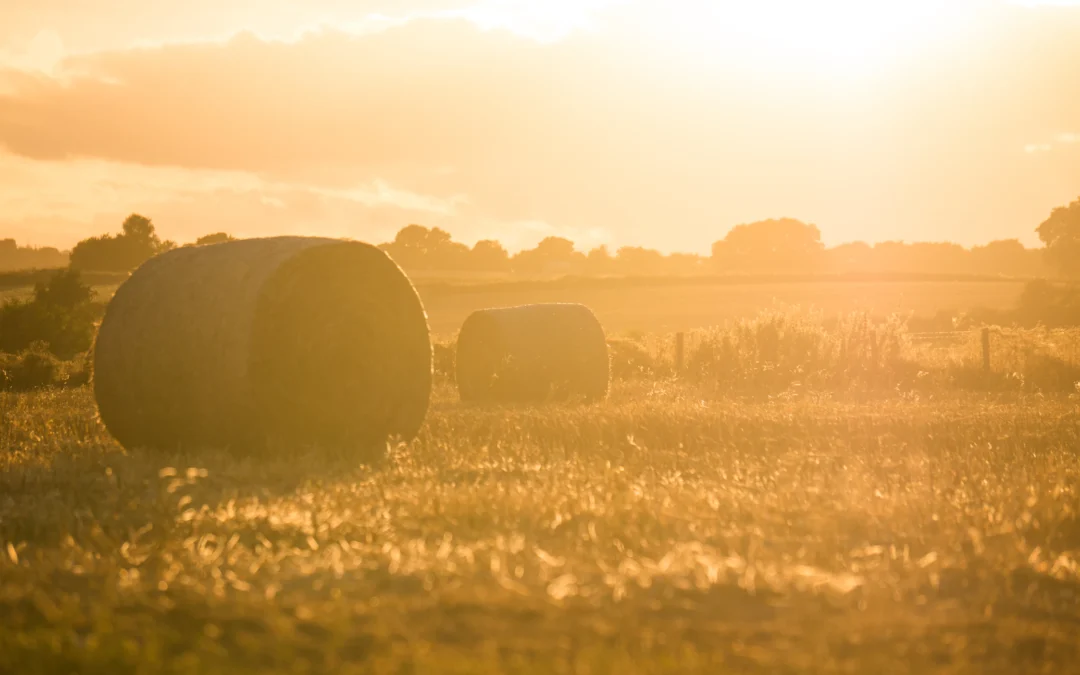It seems like a recurring theme that the older generation hangs on very tightly to many things, especially their farms. The older generation of farmers has a really hard time retiring and passing on the decision-making to the next generation. They also frequently will do anything to ensure that the farm stays in the family.
So the question is, why does the farm mean so much to them?
Like many of you, I’ve been watching the Olympics. I don’t care much about the hoopla and the ceremonies—I just love the competition and the stories. One of the great stories is about Grant Fisher, an American distance runner. Since 1912 only three American runners had won medals in the 10,000 meter race. However, in the Olympics this year, Grant ran an amazing race and won the bronze medal against some incredible runners from around the world. It takes guts just to run at a relentless pace with these amazing competitors for 9,900 meters. However, they don’t hand out medals after 9900 meters. The race is not over.
On the home stretch, with the last 100 meters remaining, there were about six men racing for only three medals. How was Grant able to win one of those medals? Sometimes, people say, “It’s about who wants it more.” I don’t always agree with that comment, but this time, I think I would.
Obviously, the Good Lord had given Grant some talent to run. However, for many years he had also committed himself to the grueling training, running for miles and miles on the backroads where no one was watching. He relocated to be able to live and train at high altitude to prepare for that Olympic moment. He ate properly and prepared mentally for what his body and mind would go through during a tough race on the biggest stage in the world. After enduring and preserving through 9,900 meters, there was no way Grant was going to let himself be denied in the last 100 meters; he laid it all on the line for that medal. He humbly earned that medal. It was awesome!
Now think about the older American farmers. Their story is grueling and relentless as well.
They learned the hard way first. They’re happy to have a tractor instead of a horse. They endured relentless and intense manual labor. They experienced all types of weather conditions without cabs. They sacrificed so many things while in the barn or in the field while no one watched. They were committed to providing for their families, paying their debts, and raising crops or livestock without any fanfare. When the going got tough, they would fight for everything because of what they had already done just to get to that point.
For a lot of older farmers, transitioning a farm can be even more emotional than earning an Olympic medal.
Many Olympic medalists declare that they have ‘worked their whole life’ to earn that medal. Well, let’s think about that. Many of these athletes are in their twenties, Grant Fisher is 27 years old. Athletes often comment in interviews that they have worked a ‘lifetime’ to earn that medal. Ok, so maybe they have worked 10-15 years. Hmmm… many American farmers are in their seventies or eighties; now that’s a ‘lifetime’ of work! So what do athletes lose if they do not win? What could a farmer lose if they do not win?
So, when a farmer has a hard time letting go or stepping aside, I really respect that. After forty to sixty years of working daily on their farms, it’s no wonder that it means so much to them. I can only hope that the next generation can appreciate the generations before them and accept the challenges that lie ahead of them. If you do, you too will understand why it means so much.

